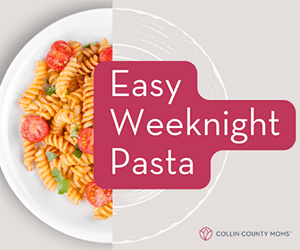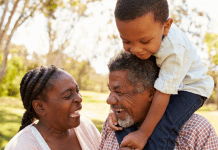As friends, family, and our communities are figuring out how to handle an uncertain future, it’s an opportunity to talk to our children about how to handle a crisis like COVID-19. It’s also a time to identify the difference between a widespread crisis versus a personal crisis or tragedy.
Take time to consider the differences between a personal crisis (such as the loss of a loved one or pet) and a crisis at large (natural disasters, mass shootings, coronavirus), and talk to your kids about those differences and different ways to react.
The hysteria associated with a tragedy at large is one clear-cut difference. We are seeing this type of behavior right now during coronavirus from even the most logical of us; it is contagious to become paranoid during an at-large crisis. If you or your child is feeling terrified. That’s very normal given all that is occurring around you! It is okay!
However, we can’t succumb to only our emotions. Remind yourself of the truths. Use your logical brain to pull yourself out of that tempting emotional spiral. Be careful to get your information about coronavirus from reputable sources, and limit your exposure to people. Limit how much brain power you will spend on it by doing some of your favorite things! The power of distraction is legit! Everyone is in this together, which is actually quite comforting. We can lean on one another during a crisis at large in a beautiful way (like how our country responded to 9/11).
During a personal crisis, the opposite experience occurs. A person may feel more isolated and alone than ever before after facing a personal crisis. It may seem as though no one understands. Complex trauma complicates everything; it is important to remember that post-traumatic stress is a normal response to many unthinkable challenges in life.
 During a personal crisis or when experiencing PTSD, I urge you to seek more personal help from a mental health professional, whether that is for you or your child. Because the crisis is unique to an individual, so is the intervention. It is much better to personalize with therapy in this case.
During a personal crisis or when experiencing PTSD, I urge you to seek more personal help from a mental health professional, whether that is for you or your child. Because the crisis is unique to an individual, so is the intervention. It is much better to personalize with therapy in this case.
Children & Personal Loss
One type of personal tragedy is loss. During the loss of a loved one, there are several ways for children to handle grief. Please allow a child to grieve by letting him or her be involved in the process.
- If there is a memorial service or funeral, tell the child what to expect prior to the service then be there for support. Be kind and gentle and open.
- Give your kids your best listening ears and a comforting touch. Share your own feelings of grief if you find that appropriate.
- Let them create! Try making a memory box, write letters to the person who has died, or draw a favorite memory. Those activities can distract from his or her own grief! Since so much has been uncontrollable, give your child the ability to be in control of when he or she wants to speak.
- Connect your child to other children who have experienced loss as well.
- Laugh together; it is so healing!
- Accept that it may be difficult for your child to concentrate on normal tasks and things.
- Please remind your loved one over and over: Love and memories never go away, even when a person has died.
 Books for Personal Crises
Books for Personal Crises
There are always books — and there’s not shortage for books on facing tragedy and personal crisis. Bibliotherapy (processing tough emotions using story books) helps, and there is so much available to us now.
- One way to heal is to help things feel normalized; we want our children to have the realization that they are actually NOT the only one to experience these feelings. Books can be a powerful tool for that.
- I love this website as a tool for finding great books: https://booksthathealkids.blogspot.com/.
- Movies and songs can also do the trick here; we just need to be picky about what we choose. Books, movies, and songs also give kids the distance they may initially need from a tragedy, as they work up the endurance to relate it directly to their own lives. It is still therapeutic for a child to acknowledge and feel the pain/loss of a character’s grief in a book, even when he or she doesn’t recognize the similar circumstance just yet.
Facing the Anxiety
Deal with the anxiety that coronavirus has stirred in all of us. Some ideas would be:
- Exercise. If it can be something you like, that’s best!
- Listen to music! This can be the soothing kind or something that makes you wanna dance (and therefore get your exercise).
- Talk about it to a trusted person (without your kids).
- Remind yourself to breathe deeply in slow, cleansing breaths. You can do belly breathing or butterfly breathing with your kiddos to help with this. Blowing bubbles is also effective.
- Think about a favorite memory. Identify what you saw, smelled, tasted, heard, and touched during that time and really relive it. As you capture that emotion, you are able to really feel the joy of it. Basically, that just means to reminisce and enjoy the experience of remembering!
- Journal. Write out your prayers or just let out your feelings as they fly onto the page.
- Give your mind tasks. Even if it is a tedious thing (like doing a look-and-find find book with your kiddo), this relieves anxiety. Anxiety happens when we feel powerless, so tasks are therapeutic, especially ones that involve your senses.
- Encourage yourself. Be your own best friend. What would you say to a best friend? Say that to yourself.
- Wait for the anxious feeling to pass. Accept the nerves and wait for them to leave, as they always do. Patiently wait for them to go again and be on their merry way.
- Model self-care. Don’t neglect yourself and continually try to meet your kid’s needs. They need to know that you sometimes need some “me time.” They need it, too!
Tragedy and hard times will reach all of us and our children as well. We want to shelter them, but that isn’t always the best way to help them gain acceptance. Part of strong mental health — a huge part of it — is the ability to accept things as they are. Having that flexibility and ability to accept hard information or terrifying news is powerful. It separates the resilient from those who crumble.














